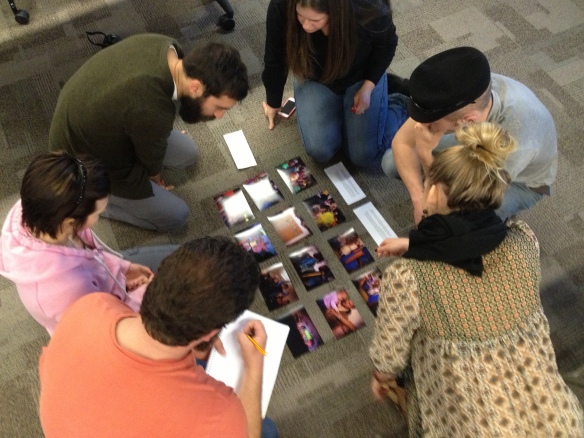 As part of my work as the New Mexico Daily Lobo writing coach, I coordinate a yearly journalism education bootcamp for local student journalists. This year’s #lobocamp just finished up, and I had a few thoughts and a Storify curation I wanted to share.
As part of my work as the New Mexico Daily Lobo writing coach, I coordinate a yearly journalism education bootcamp for local student journalists. This year’s #lobocamp just finished up, and I had a few thoughts and a Storify curation I wanted to share.
We had about 60 students from the University of New Mexico and Central New Mexico Community College, which is a good portion of the local journalism majors. I knew I wanted the best speakers New Mexico had to offer, so I started coordinating last August. It worked. Thirty one print, TV and online reporters and photographers committed to the event. I wish I had started letting students know back then, as I think a few more would have attended, but I really plugged the event once I had it lined up, in early December.
A few thoughts on content: way more students were interested in a panel on data journalism than I thought. Given the choice between that and learning WordPress, more chose to learn about using databases to tell stories. On feedback forms, the students also said the panel they were most interested in was about breaking news, followed by a talk about the latest tools journalists use. Students said they were least interested in a panel on surviving as a freelancer and working with editors.
One big lesson this year was that if you ask students to tweet about an event, they will. Students who were not on Twitter at the start of the conference were using it by Sunday. Our #lobocamp hashtag didn’t trend on Twitter, but probably got close. It also got the attention of other reporters and student journalist educators around the country. A former U.S. representative from New Mexico even got in on the hashtag, during a trip in Tunisia. So once the event started, I didn’t have to worry about creating any more buzz. (The trick with Twitter, as you probably know, is that students will tweet anything during the event with your hashtag, related or not.) But overall, they did a great job of synthesizing the information presented to them and describing what they were learning. I see the use of Twitter during a live event as a skill that fits in with deadline and breaking news writing — the tweets have to be accurate and fast.
The challenge for me now is to harness the enthusiasm and energy the students have coming off two days of intense learning. If anyone has ideas on that, please send them my way.
Here are two curations, one from each day, of the best tweets and pics from the event.
[View the story “2013 Daily Lobo Journalism Bootcamp” on Storify]
[View the story “Day two of the 2013 Daily Lobo Journalism Bootcamp” on Storify]
